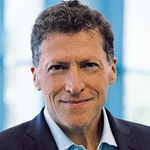
Arnie Weissmann
Juan Pablo Culasso, a birding guide and consultant, has never actually seen a bird. Nonetheless, when standing next to a group of birders who are peering into the trees through binoculars, he'll be the first to identify a species and point to where the bird is in the canopy.
Culasso is blind, but his hearing is so acute (he has absolute pitch) he can identify over 3,000 components of birdsong and differentiate among more than 700 species in his native South America (he's Uruguayan). Ten years ago, he won a $45,000 prize in a National Geographic competition by accurately identifying 15 random bird calls.
I met him at the Explorers Club Global Summit in the Azores last month, where he was making a presentation. He has expanded his sound library (you can find him on Spotify) to other sounds of nature; he spent two months in Antarctica recording icebergs calving, seals and birdlife.
But birding, and making it available to all, is his primary focus, and as a consultant, he works with ecolodges to create infrastructure that enables people with blindness or low vision to walk nature trails through rainforests. He trains people on how to guide a blind person in the field. And he has created beautiful soundscapes to be played in the public spaces of lodges and in museums in South America.
At his Explorers Club talk, his ability to articulate how people enjoy birding without sight was fascinating.
"As a blind person, there aren't many opportunities to connect with nature," he later told me. "I need to make things better and easier for my community."
Nature trails can present hazards to a blind person, and signage seldom includes Braille. Guides generally aren't trained to help disabled visitors.
He said a hotelier doesn't need to spend a fortune to convert a property to better assist blind guests to enjoy a natural setting. "You just have to adapt the structures you already have," he said. "If you have a trail, put a rope alongside it. It's not only good for blind guests but for seniors and children, as well."
The texture and thickness of the rope can also signal to someone when they have reached a QR code, which might provide information about the area or instructions, such as "Reach out and you can touch a mahogany tree," followed by information about that tree. It may tell what birds are in the area and even offer a caution about what's ahead, such as "Going forward, the trail goes downhill, so move slowly."
In an interview with the public radio show "Science Friday," Culasso described guide training. People may worry about how to communicate with blind people, particularly about how to describe things, he said. "Many people think that blind people know nothing about colors, but it's not true. Use associations. You can say, 'It's blue like the sky is blue.'"
It's important that guides also learn how to physically guide people when they're not near ropes. "Ninety-nine percent of people, when they want to guide me, take my hand," Culasso said. "This is a mistake because my hands are my eyes. Take my arm [so my] hands can be free to navigate and understand."
He went on to say that the biggest obstacle to having this type of accessibility more widely adopted is often "the mental thing," the belief that to make things accessible is going to be difficult: money to spend, physical places to adapt, people to train. To get past that, he said, it helps to "believe that [access to] nature is a human right."
I asked Gabriel Willow, a Brooklyn-based ornithologist, if he had ever had any blind guests on one of the bird-watching tours he leads. He said no but cautioned me to use "birder" rather than "bird-watcher" -- birder has become the standard precisely to acknowledge that there are more ways to enjoy birds than visually.
He also pointed me to Birdability, a nonprofit dedicated to making birding available to a wide range of people with accessibility challenges. They offer a guide to making trails more accessible as well as a site review questionnaire to see if your trail would qualify to be added to their map of accessible sites.
Culasso's story is as practical as it is inspiring and offers guidance on what will prove to be a rising market. As boomers continue to retire, age and keep traveling, accessibility is very likely to become more mainstreamed. Going forward, appropriate adaptations to properties, tours and attractions will be prompted as much by profit motive as government mandate.
And Culasso reminds people that making these adaptations is not only for the benefit of the blind. He recommends putting a platform at the end of a trail so people can gather to share their impressions. "The core of inclusion," he said, "is to have memorable experiences together."